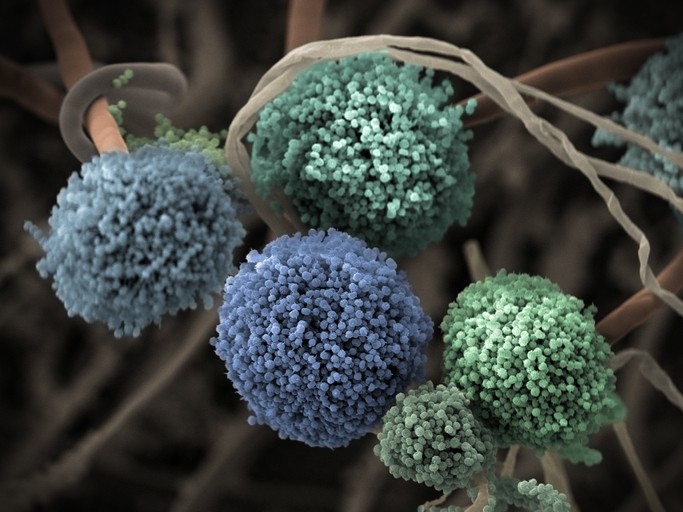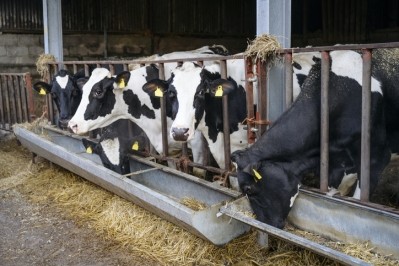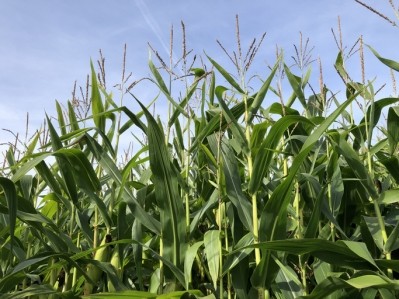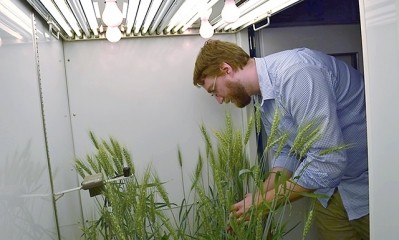Plugging gaps in knowledge around mycotoxin impacts in poultry

“Although there are many studies investigating the effects of OTA on the gut health of poultry, further studies are needed to better characterize the underlying mechanisms of action and develop preventative or therapeutic interventions for mycotoxicosis in poultry,” stress the Chinese reviewers, writing in Poultry Science.
OTA, they noted, has strong thermal stability, and is difficult to remove from feed. It has been shown to be nephrotoxic, hepatotoxic, teratogenic and immunotoxic to poultry (Hameed et al., 2017; Wang et al., 2019; Hassan et al., 2012b; Bhatti et al., 2019), said the team.
The gut is the first defense barrier against various types of mycotoxins present in feed that enter the body, and it is closely connected to other tissues through enterohepatic circulation. “Compared with mammals, poultry is more sensitive to OTA and has a lower absorption rate. Therefore, the gut is an important target tissue for OTA in poultry.”
Literature review - the findings
Their literature review summarized the available evidence regarding the effects of OTA on intestinal health and microbiota in poultry.
The effect of mycotoxins on nutrient and energy digestibility has been well documented, they said.
Verma el al, 2007 saw OTA, in combination with aflatoxin, had a more pronounced effect on the metabolizable energy content of the diet than the toxin in feed alone, and this reduction occurred through a significant increase in the maintenance energy requirement of the hen.
Many studies have shown that OTA can destroy intestinal barrier integrity by suppressing tight junction proteins, such as occludin, ZO-1 and claudin-1, in poultry, said the team, citing Ruan et al., 2019; Wang et al., 2019; along with Yang et al., 2020. The increase in intestinal permeability, in turn, promotes the translocation of bacteria (Kelly et al., 2015).
“Together, OTA could destroy tight junctions, such as downregulating the expression of tight junction genes and proteins and increasing the serum LPS content, thus, increasing the gut permeability. The increased gut permeability may subsequently enable the translocation of the harmful stressors, particular bacteria (commensals and pathogens), from the gut lumen to the internal environment and eventually cause harm to animals,” reported the Chinese scientists.
Other studies reviewed suggested that OTA is cytotoxic to the intestinal epithelium and mucosa-associated lymphoid tissue, altering the intestinal barrier and increasing susceptibility to various associated diseases, they added.
They noted that few papers have reported the effects of OTA on gut microbiota and microbiota metabolites, particularly in terms of chronic exposure at safe doses.
“Therefore, this area of research needs to be addressed further. Moreover, evaluating the variations in microbial functions such as signal transduction and metabolism by transcriptomics and/or metabolomics might provide great opportunities to assess the impact of OTA on gut health and the development of bacteria and metabolites regulating OTA induced intestinal injury.”
Studies in broilers and ducks suggested that OTA decreased the richness and diversity of the cecum microbiota and induced intestinal tight junction injury (Yang et al., 2020; Wang et al., 2019), they said.
“Our latest research confirmed these results, which increased the relative abundance of cecum Bacteroides in ducks fed OTA-contaminated diets (Zhai et al., 2020). Although Bacteroides (gram-negative bacteria) are often associated with the leanness and other desirable health traits (Turnbaugh et al., 2006; Ridaura et al., 2013), some of its strains have been linked to abdominal infections, metabolic disease, and inflammation (De Palma et al., 2010; Davis-Richardson et al., 2014). This outcome may further suggest that OTA may cause negative effects on the host health via gut microbiota modulation.”
Conclusion
There is a need to find out more about the deleterious effects of ingested OTA on the epithelium, mucosa, and microbiota of poultry, concluded the team.
However, they see that the OTA disrupts the tight junctions and the gut microbiota balance and thereby dysregulates intestinal functions and impairs local immune response, which may eventually result in systemic toxicity that leads to chronic mycotoxicosis, such as liver inflammation.
“Although there are many studies on the effects of OTA on the gut health of poultry, it is not known which kinds of gut microbes or metabolites are affected by OTA and thus cause harm to gut health.
“In addition, the effects of chronic exposure to a safe OTA dose in the poultry should not be underestimated.”
They anticipate further research work may open a new path to novel preventative or therapeutic interventions for mycotoxicosis, such as probiotics, for example, that regulate the intestinal microbiota and improve the intestinal barrier.
Source: Poultry Science
DOI: https://doi.org/10.1016/j.psj.2021.101037
Title: Ochratoxin A: Its impact on poultry gut health and microbiota, an overview
Authors: L Yang et al.















